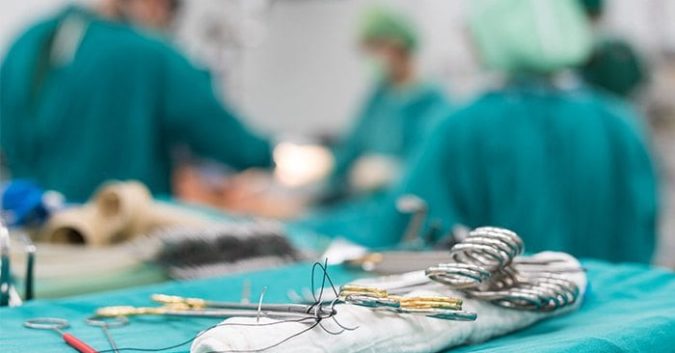Because of a faulty medical device, open-heart surgeries have just become a whole lot more dangerous. The use of contaminated heater-cooler devices, most frequently manufactured by the company LivaNova PLC, has introduced deadly bacteria into the operating room — and many patients may not know they have been infected until it is too late.
Every year, roughly 250,000 surgeries in the United States make use of this device — surgeries such as cardiac bypass, valve replacement and liver transplants. An estimated half-million patients have had open-chest surgery in the past several years, and therefore could have been exposed to this deadly, slow-growing bacteria known as nontuberculous mycobacteria.
How Can Patients Know If They Are at Risk?
If you or a loved one has undergone open-chest surgery in the last 4 years, it is imperative to contact doctors and hospital staff. Symptoms of infection, which can be mild — such as fatigue, night sweats, muscle aches, weight loss, or unexplained fever — are often delayed and manifest months or even years after the fact.
When diagnosis is missed or delayed, it becomes much harder to treat infection, and as a result some patients have needlessly died. In a just-released, official government health advisory, medical professionals have been urged by the Centers for Disease Control and Prevention (CDC) to contact potential victims and “increase awareness among healthcare providers.”
In addition to this, the Federal Drug Administration (FDA) has issued a safety alert urging hospitals to adopt new protocol in how they clean and use these devices, with the ultimate goal of “transitioning away from the use of these devices for open-chest cardiac surgery.”
How Does This Bacteria Enter the Operating Room?
The heater-cooler device is responsible for regulating a patient’s internal temperature during operations. While it does not come in direct contact with a patient’s body, it makes use of a water reservoir. During use, microbial agents can be spread through evaporation or by getting sprayed into the air of the operating room through exhaust vents.
Recently, new information has been brought to light that suggests these devices were contaminated during the manufacturing process in Germany. LivaNova’s negligent business practices are ultimately responsible for victim suffering.
In addition to contamination at the production-level, medical devices such as the heater-cooler are often designed without considering hospital maintenance and cleanliness protocols. CDC’s deputy director of health-care quality promotion, Mike Bell, points out that “some smart engineer designed it because surgeons said they need to keep this cool and that warm.” Bell argues that the person who designed the machine perhaps had different objectives and wasn’t “thinking about maintenance and repair.”
How to Address This Issue
The Washington Post has published a helpful and thorough article that addresses many questions patients and potential victims may have. The first step is to contact your hospital or doctor to open a line of communication. If you have recently undergone open-heart surgery, or another type of surgery that has made use of a heater-cooler device, the possibility of infection should be added to your medical chart. This way, early symptoms are more likely to lead to a correct diagnosis.
Medical errors have become all too common — in fact, they are currently the third leading cause of death in the United States. In the case of LivaNova heater-coolers, and other faulty medical devices, doctors are provided with dangerous equipment and, sadly, safety is compromised from the get-go.
Open-heart surgery is frightening enough without these unnecessary complications. It is time that we demand consistent access to safe medical devices. Sadly, LivaNova received notice of deaths from this bacteria in 2014, and, now, in 2016 these devices are still being used. As with all cases of medical device negligence and corporate greed, it is imperative to spread the word and demand justice to insure that this problem doesn’t keep happening.
